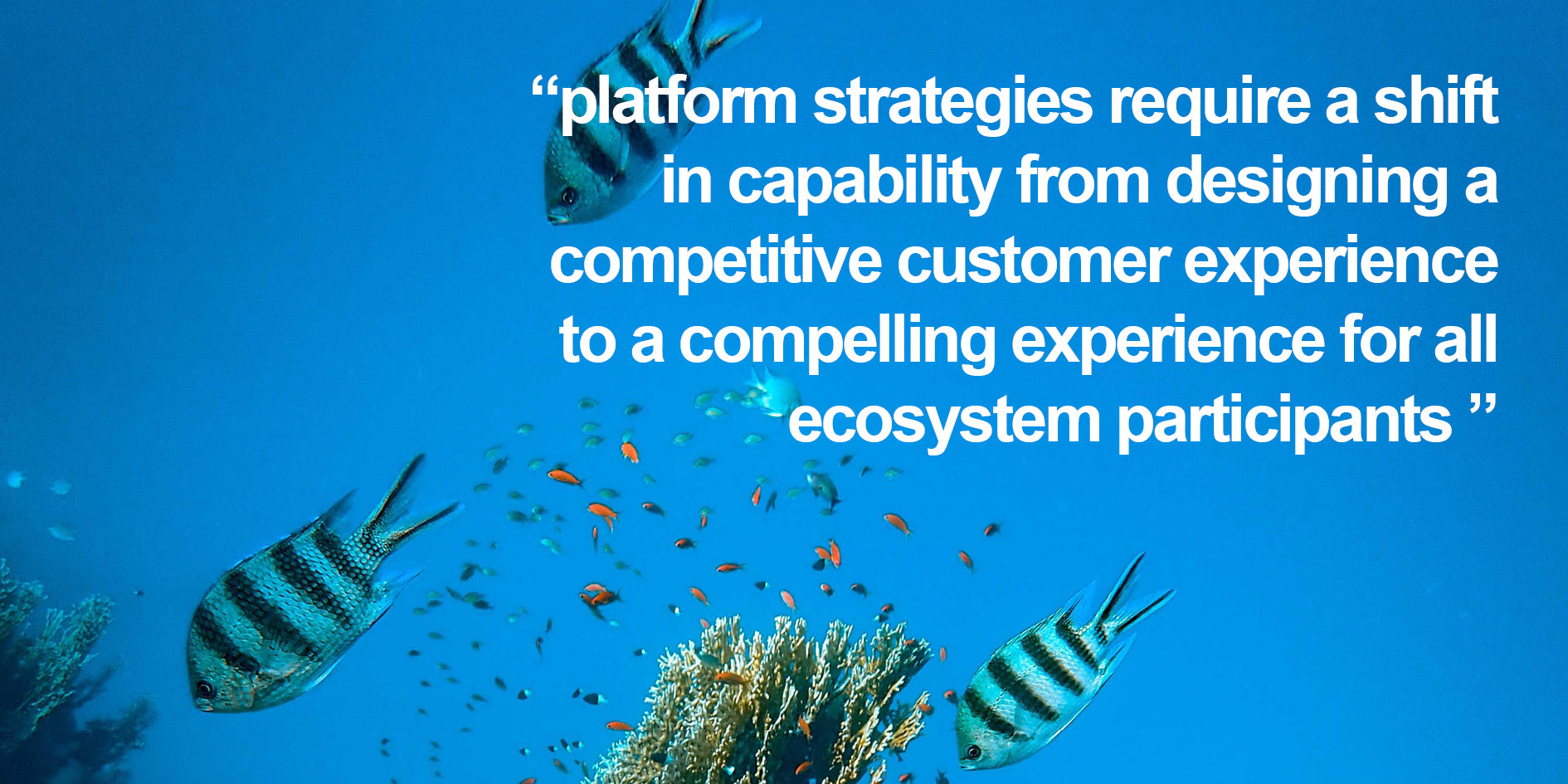Almost five years ago, I shared a perspective on the imperative for organisations to compete on customer experience and journeys. That they were the next frontier of competitive advantage. The importance of this is not going away. Indeed the current global pandemic has only proved to be an accelerant.
When physical storefronts, service centres and offices are unavailable, your customers, and potential customers rapidly expose the shortcomings, or, if you’ve invested appropriately, extol the virtues of, your digital experience.
And by appropriately, I mean in a way that the deployment of new technologies has been guided by deep human insights, and the true drivers of value and satisfaction validated through data-driven experimentation. The world is littered with projects where extraordinary sums have been wasted delivering experiences that no-one enjoys or fall short of the mark.
The twentieth century industrial paradigm conditioned customers to accept standardised, mass market products and services in exchange for affordable prices. Artisanal products and personalised experiences, the only offerings in the nineteenth century, became the preserve of the very wealthy. Then at the dawn of the twenty first century, customer expectations were changed forever by the ability of business from Amazon to Netflix to deliver both mass personalisation and value to the long tail of individual preference.
The rise of platform business models and the shift to operating within new ecosystems of value rather than in linear value chains means that, for many organisations, their capability must evolve beyond designing and delivering a competitive customer experience, to designing and delivering a compelling experience for all ecosystem participants - consumers, producers and partners.

So what capabilities need to be developed in order to successfully compete on experience?
It starts with aligning your experience goals with your overarching strategy and business goals. It requires you to invest in and implement systems with which to capture and consolidate a multitude of unique ecosystem participant data points and create a single participant view shared across the company; to develop the collaborative culture, structure, system and skills to support agile ecosystem participant management; to identify and deeply understand and the touch-points that matter most to customers; to build appropriately immersive, personalized and automated experiences; and to be able to measure, iterate and optimise over time.
Recently released research by ESI Labs for ServiceNow, a digital transformation platform leader, found that of the trillions of dollars invested into digital transformation projects, the majority has been targeted at delivering back-stage efficiencies, rather than exceptional front of house experience, to extend the theatrical metaphor. The number of companies that are prepared to compete on their ability to offer great digital experience to their customers is surprisingly small.
- just 20% have implemented systems to support digital customer experience
- just 18% have performed journey-mapping
- just 12% have a single customer view
The survey identified that the strongest capabilities of leaders also exhibited the widest gaps to followers
- 47% of leaders had CX strategy aligned to business goals v 7% beginners
- 45% of leaders had a CX management system v 11% beginners
- 43% of leaders had identified key customer touch points v 8% beginners
For those organisations yet to get started on transforming their digital customer experience, you could argue that the news isn’t all bad. Newer technologies such as AI and voice assistants are transforming the landscape; we have the capability to capture and infer sentiment from unstructured data as well as the implied action of structured data; and the price of access to all this technologies is cheaper than ever.
But there is no time to waste. Within three years:
- 81% of leaders expect to have personalised services v 16% of beginners
- 80% of leaders expect to have automated processes v 15% of beginners
- 76% of leaders expect to have aligned experience effort to business goals v 21% of beginners
And, as we've outlined, for many organisations, the next shift will demand that you understand the needs and design the appropriate experiences for not just customers, but for a variety of ecosystem participants with potentially conflicting goals. It requires you to deeply understand both their motivations for value exchange and their expectations of how transactions should be brokered.
Being treated as one of the masses, and not recognised as an individual, is no longer acceptable as a consumer. Being similarly recognised as an individual producer or partner within emerging ecosystem of value is the new frontier.
